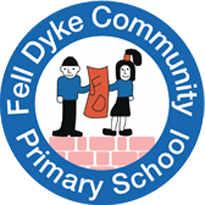Computing
Intent
The Computing curriculum at Fell Dyke Community Primary School is designed to enable pupils to embrace and utilise new technologies through the application of essential knowledge, principles and concepts. “Whether you want to uncover the secrets of the universe, or you want to pursue a career in the 21st century, basic computer programming is an essential skill to learn.” Stephen Hawking Theoretical Physicist, Cosmologist and Author. Pupils must be equipped to operate in a rapidly changing workplace and to be prepared for the career opportunities that will be open to them.
Technology is everywhere and will play a pivotal part in students’ lives, therefore, we want to model and educate our pupils on how to use technology positively, responsibly and safely. We want our pupils to be creators not consumers and our broad curriculum encompassing ‘Computer Science’, ‘Information Technology’ and ‘Online Safety’ reflects this. We want our pupils to understand that there is always a choice with using technology and as a school we utilise technology to model positive use. We recognise that the best prevention for a lot of issues we currently see with technology and social media is through education. Technology provides accessibility opportunities for our pupils and also allows them to share their learning in creative ways. Our knowledge rich curriculum has to be balanced with the opportunity for pupils to apply their skills creatively which will in turn help our pupils become proficient computer scientists.We want our pupils to be fluent with a range of tools to best express their understanding and hope by Upper Key Stage 2, children have the independence and confidence to choose the best tool to fulfil the task and challenge set by teachers.
Implementation
Computing skills are taught explicitly at Fell Dyke Community Primary School, with every pupil receiving dedicated Computing lessons throughout each half-term. Each half-term has a focus on either Digital Literacy or Computer Science, with Online Safety lessons also taught during each half-term. The skills acquired are then embedded throughout the curriculum in all subjects. Online Safety lessons are mapped to the ‘Education for a Connected World’ framework (starting January 2023) and some of these activities will be reinforced via PSHE lessons (through our Jigsaw scheme of learning) and during assemblies. Learning is sequenced to build knowledge, skills and vocabulary. Throughout units of work teachers will make links and encourage children to make links between past learning and new content. We recognise prior learning and build on it with memorable learning experiences with targeted support where necessary. Each unit meets the needs of the National Curriculum and is broken down to cover every element of each of the three strands of Computing.
Our current computing curriculum at Fell Dyke is constantly being updated and adapted to keep up with technological updates and how our school is operating: we have mixed age classes in birth Key Stage 1 and Key Stage 2. This means that all children now work in cycles throughout each phase.
Understanding the needs of the children at Fell Dyke, we were able to identify the knowledge and skills the children will need to be successful, to be able to use information and communication technology in the future and in the workplace. The children will have the opportunities to develop their computing skills and learning on: laptops, iPads, Chromebooks and without any digital devices. Our curriculum has developed from working closely with a Computing advisor and keeping up and engaging with Computing CPD to ensure we have a comprehensive curriculum to best embed and cover every element of the Computing curriculum. Each stand of Computing is developing a whole school focus and a clear and logical progression of skills throughout school. Whole class Computing Portfolios are used to evidence computing work, and allow children to reflect on their learning throughout the year.
Impact
The impact of our Computing curriculum is that we provide pupils with pupils with a set of skills to embed a lifelong love of learning and that they build on the knowledge and skills from previous learning. We ensure that every child can become a confident user of technology, while being able to use it to accomplish a wide variety of goals, both at home and in school. Children will have a secure and comprehensive knowledge of how technology works in the world around them and will develop their understanding of how to deal with online situations safely. Children will become confident global citizens. Whole class Computing Portfolios are used to evidence computing work, and allow children to reflect on their learning throughout the year. Through the explicit teaching of Computing skills, both the teachers and the pupils assess their learning continuously throughout the lesson.
By nature Computing is going to be practical and hands on. We use Computing Portfolios to record the learning the children have done in Computing, as well as giving the children the opportunity to record individually on their digital devices. Thoughts and ideas are recorded here as well as pictures of work.
